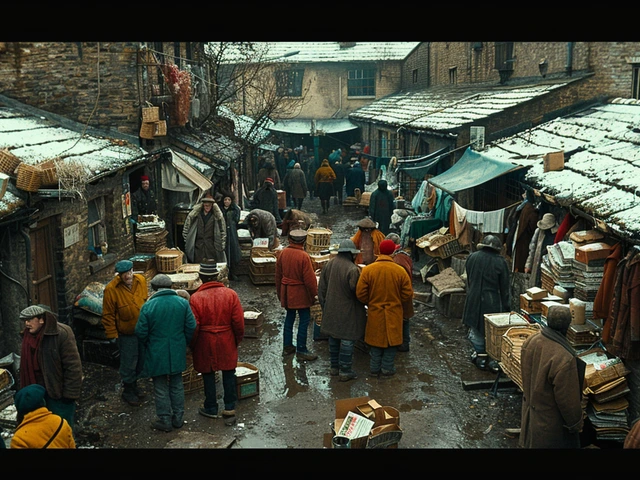Introduction to Fluxus: The Disruption Causing Tidal Waves in Art
It's about time we plunged headfirst into the wave of Fluxus -- a tumultuous, evocative movement that has stirred up the still waters of the traditional art world. Fluxus, famously described as 'the most radical and experimental art movement of the 1960s', seeped into the pores of the stagnant art scene and caused all out uproar.
Looking at Fluxus, it's hard not to be enamoured by the sheer audacity and irreverence of it all. Derived from the Latin word 'fluxus', which means flowing, this art movement does exactly that. Bucking trends, Fluxus is an intermedia movement, disregarding the traditional boundaries separating different forms of art such as painting, sculpture, music, and literature. It's like a rampant river, splashing its color on every exposed surface, occasionally flooding its banks, defying the conventional channels assigned to it.
I remember when I first stumbled upon Fluxus. The year was 2002, and the venue was my local bookstore. I found a slim, unassuming volume on Fluxus and the rest, as they say, is history. My life was irrevocably changed - from a casual art appreciator to an impassioned devotee - in the best way possible.
Origins and Key Players: When Thunder Roared in the Artistic Field
Take a step back in time with me, back to the 1960s, a period of grand declarations and resonating manifestos that shook the foundations of societies around the globe. Amidst this backdrop, Fluxus took birth, under the stewardship of Lithuanian American artist George Maciunas. What kicked off as a series of festivals in Europe, soon got momentum, and Fluxus became a revolutionary force, with artists such as Yoko Ono, Joseph Beuys, Nam June Paik amongst its proponents.
A Fluxus happening was an event not to be missed. Audience participation, the use of simple materials, and a disregard for the traditional art institutions were some of the features that made Fluxus stand apart from the prevailing art movements. Above all, the underpinning philosophy of Fluxus revolved around the idea that art should be simple, fun, and accessible to everyone — shattering the elitist image associated with conventional art. It was the art rebellion that the world didn't know it needed, but once it arrived, there was no turning back.
Fluxus: Propagating Art in Everyday Life
Fluxus artists sought out the extra in the ordinary, the magical in the mundane, striving to blur the lines between life and art. I recall an amusing story about a Fluxus event I attended. The artist on stage opened a can of beans, poured it into a bowl, and then grabbed a spoon and started eating. He did this with such intensity and dedication that the audience was gripped. It was an unexpected, joyous celebration of everyday life, casting a spotlight on the overlooked and undervalued aspects, beautifully encapsulating the Fluxus spirit.
Fluxus was a party where everyone was welcome, a rolling carnival where art was no longer confined to hushed galleries or towering marble statues but could be found in a bowl of beans, a dirty puddle, or even in the tangles of your headphone wires. It elevated the mundane, celebrated chaos, and poked fun at the seriousness associated with conventional art.
A Legacy that Continues to Flux
As time flows, so does Fluxus, morphing and adapting, just like a river charting its course. Fluxus has influenced many contemporary art movements and continues to challenge traditional notions about art. It was Fluxus that spread the seeds of conceptual art and performance art, movements that dominate the contemporary art scene. It was an upheaval, a seismic shift in the way people perceived and experienced art.
Fluxus lives on - in our daily rituals, in our interactions with the world around us, in our embrace of the mundane. It may be far removed from its raucous origin, but the core idea remains intact: art is everywhere, and everyone is an artist.
Fluxus encourages us to find the extraordinary in the everyday, teaching us that art, in essence, is a joyful expression of life. In our rushed world, take a moment. Observe, immerse, participate. Be the artist. Let life be your canvas, and let every moment be a masterpiece.



